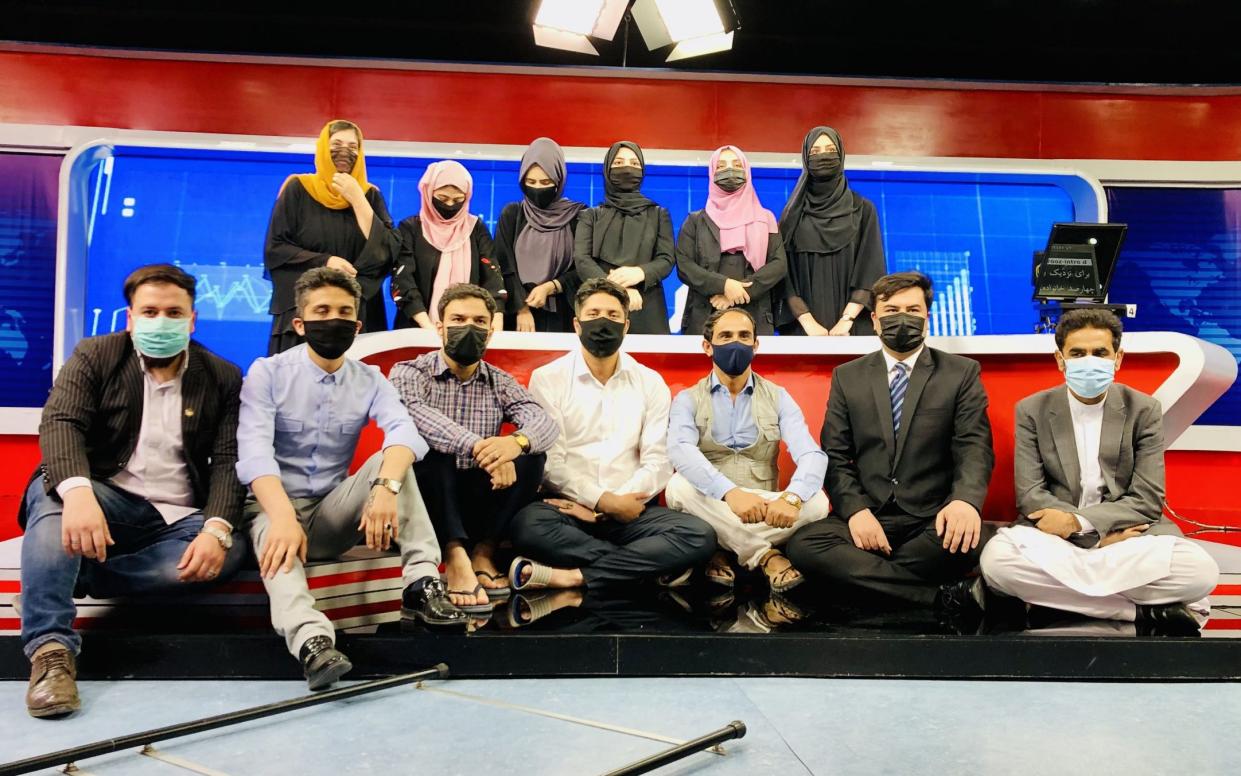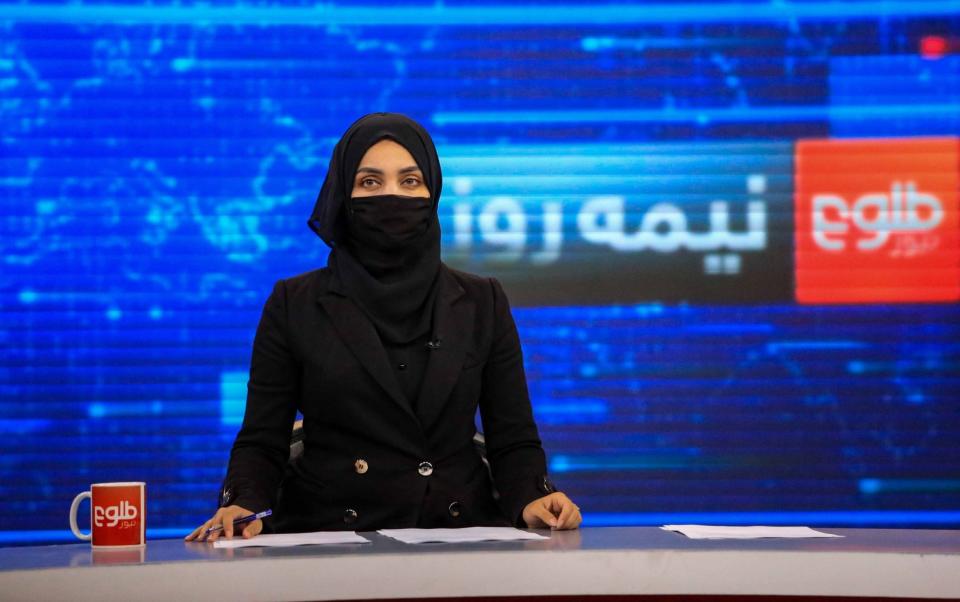Men at Afghan TV station wear masks to support female colleagues told by Taliban to cover up

Male Afghan news presenters wore masks during broadcasts to show solidarity with female colleagues told to cover their faces under new Taliban rules.
Female television anchors were directed to cover their faces from Sunday under an edict from the Taliban's ministry of vice and virtue.
The directive followed a nationwide proclamation that women outside the home should cover their faces, preferably with the burqa. Women who had no important work outside would be better to stay at home, the order said.
Female newsreaders were then told to obey the rules on Thursday. At first only a handful of news outlets complied. But on Sunday, most female anchors were seen with their faces covered.
Male presenters on Tolo, Afghanistan's most popular television network, wore Covid-style surgical masks alongside their female colleagues.
“I can’t breathe nor talk properly – how will I be able to run the program?” said Khatira Ahmadi, a female Tolo news presenter.
Sonia Nizai, a female news anchor, added: “We were not ready mentally and morally that such things would be forced on us. Running three hours of programs with a mask is very difficult.”

Women presenters were previously only required to wear a headscarf. Tolo news director, Khpolwak Sapai, said the channel had been compelled to make its women presenters follow the order.
“I was called on the telephone yesterday and was told in strict words to do it. So, it is not by choice but by force,” Mr Sapai told AFP.
Afghan male journalists also began sharing pictures on social media of themselves wearing masks in solidarity.
Mohammad Akif Sadeq Mohajir, spokesman for the ministry, said: “We are happy with the media channels that they implemented this responsibility in a good manner.”
Women's rights campaigners have accused the Taliban of attempting to erase women from public life in Afghanistan. Girls have been blocked from secondary school and women have been told they cannot travel alone.
Mr Mohajir said the authorities were not against women presenters.
“We have no intention of removing them from the public scene or sidelining them, or stripping them of their right to work,” he said.
Protect yourself and your family by learning more about Global Health Security

 Yahoo News
Yahoo News 
